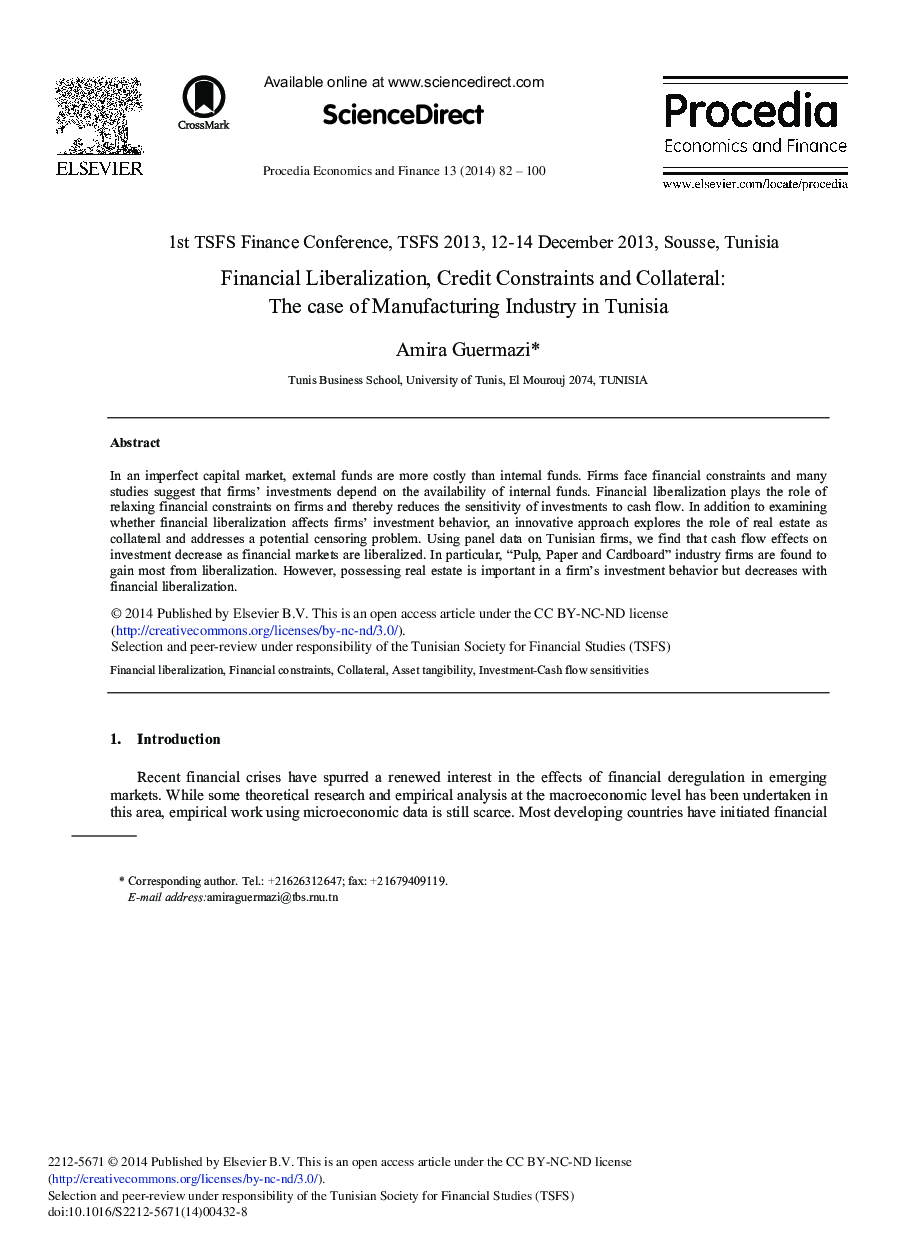| Article ID | Journal | Published Year | Pages | File Type |
|---|---|---|---|---|
| 982611 | Procedia Economics and Finance | 2014 | 19 Pages |
In an imperfect capital market, external funds are more costly than internal funds. Firms face financial constraints and many studies suggest that firms’ investments depend on the availability of internal funds. Financial liberalization plays the role of relaxing financial constraints on firms and thereby reduces the sensitivity of investments to cash flow. In addition to examining whether financial liberalization affects firms’ investment behavior, an innovative approach explores the role of real estate as collateral and addresses a potential censoring problem. Using panel data on Tunisian firms, we find that cash flow effects on investment decrease as financial markets are liberalized. In particular, “Pulp, Paper and Cardboard” industry firms are found to gain most from liberalization. However, possessing real estate is important in a firm's investment behavior but decreases with financial liberalization.
